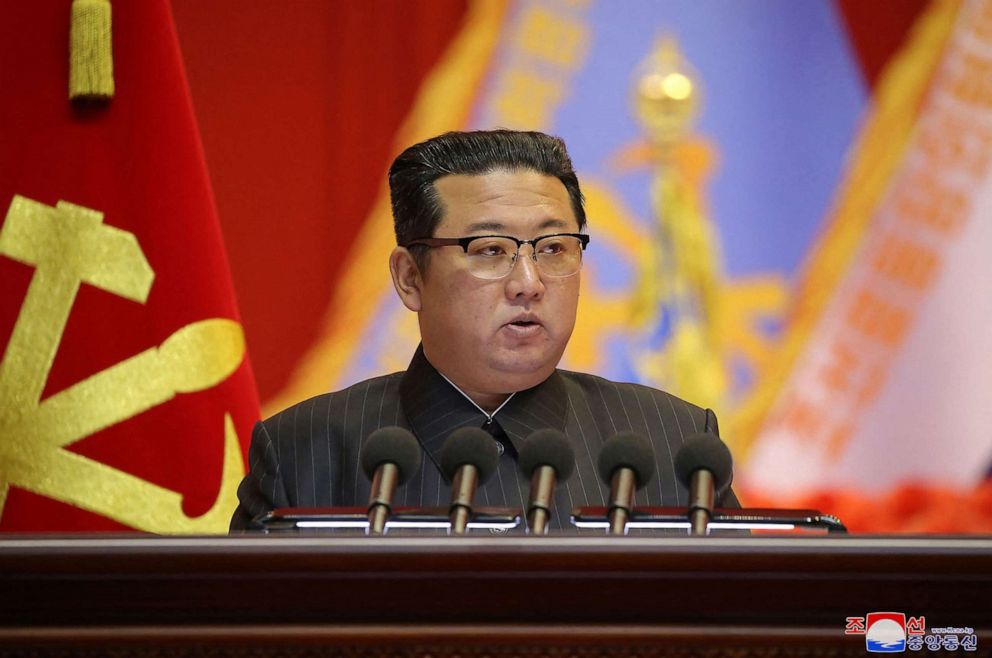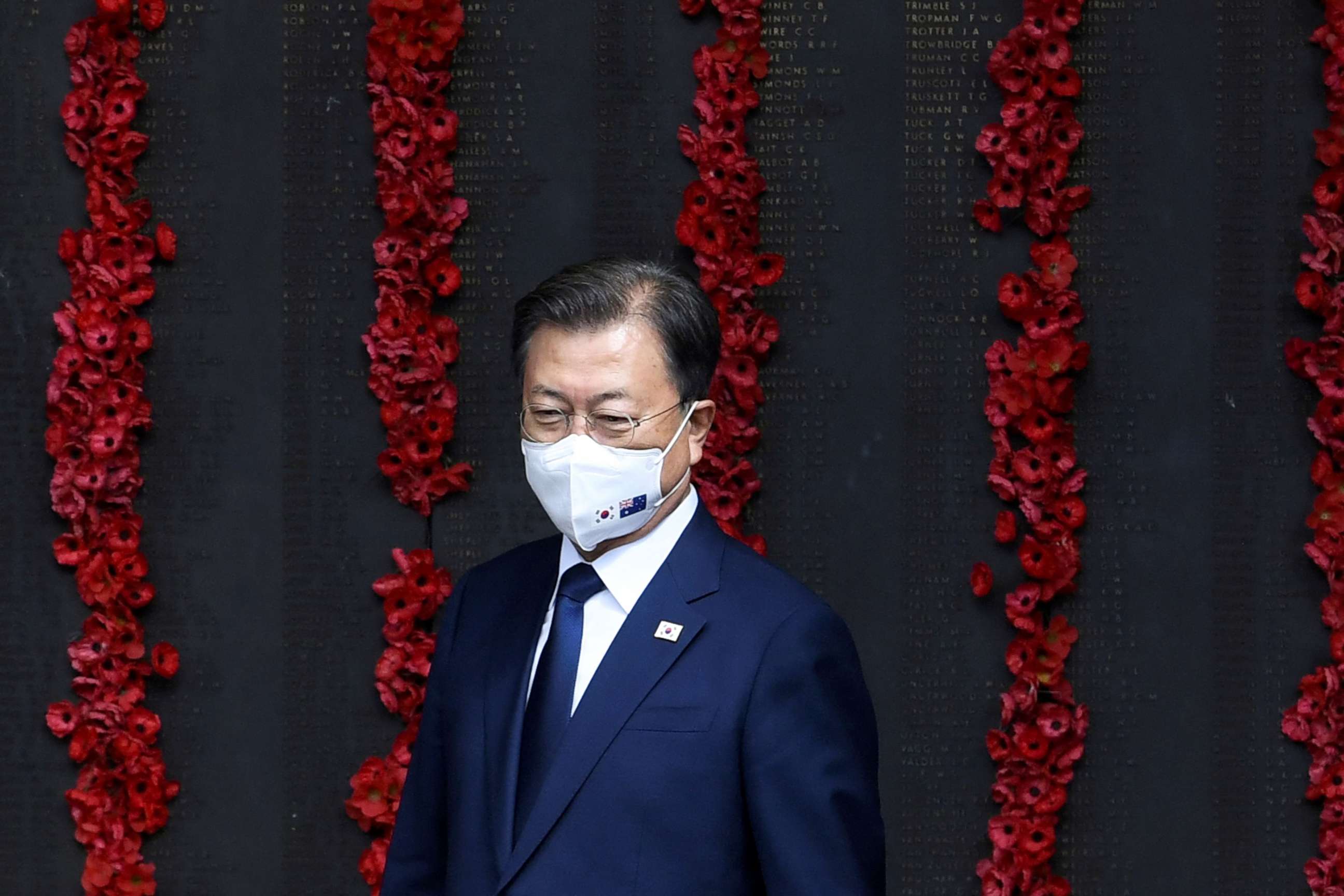Korean War end-of-war declaration agreed in principle: Moon
The U.S., China and North Korea came to the agreement, Moon said.
SEOUL, South Korea -- South Korea says the United States, China, and North Korea agreed on “fundamental and principle levels” to declare a formal end to the Korean War that ended in 1953 without a peace treaty.
South Korean President Moon Jae-in also told reporters that his government is “not considering” a diplomatic boycott of the Beijing Winter Olympics. “We have not been offered to participate [in the boycott] by any country, including the United States,” he said at a joint press conference on Monday after bilateral summit talks with Australian Prime Minister Scott Morrison in Canberra, Australia.
“If North Korea shows strong intention to discuss the end-of-war declaration further, that’s at least a message that they are willing to come to the [nuclear] negotiations table,” Philo Kim, professor at the Institute for Peace and Unification Studies in Seoul, told ABC News.
Talks for denuclearization have been at a standstill since the U.S.-North Korea Hanoi summit in February 2019 ended without an agreement.
But many experts in Seoul say the end-of-war declaration is only symbolic and could only benefit President Moon nearing the end of his five-year term as a personal achievement. “The administration may think it will be a breakthrough to resume dialogue but I don’t think it's a realistic alternative,” Du Hyeogn Cha, an analyst at Seoul’s Asan Institute for Policy Studies, told ABC News.

Moon is also hoping to keep communications with North Korea ongoing by sending diplomatic envoys to the Beijing Olympics, experts say. It is highly likely that North Korea’s top leaders, including North Korean leader Kim Jong-un, will attend the Beijing Olympics given North Korea’s close ties with China.
“Through the Beijing Olympics, Moon may be hoping to talk to North Korea on a summit level,” Shin Beom-chul, director of the Center for Diplomacy and Security at the Korea Research Institute for National Strategy, told ABC news.
Stuck in the middle of the balance-of-power struggle between the United States and China, Moon told reporters he is “trying to maintain a harmonious relationship with China while building on a solid alliance with the United States.”

“South Korea is in a very difficult position. It just can’t go all-in on its alliance with the US because there is much at stake when it comes to China. Beijing has strong influence in the peace and stability of the Korean peninsula as it is a powerful backup to Pyongyang,” South Korea’s former ambassador to Japan Shin Kak-soo told ABC news.
Moon on a 4-days state visit to Australia also struck a $720 million defense deal in which South Korean defense company Hanwha would sell artillery weapons, supply vehicles and radars to the Australian army. Morrison said the new defense contract would create about 300 jobs in Australia, where a division of Hanwha operates. Australia recently announced a deal to build nuclear-powered submarines in a partnership with the U.S. and Britain–a move that China has strongly condemned.
Abc News’ Hakyung Kate Lee, Chae Young Oh and AP contributed to this report.



